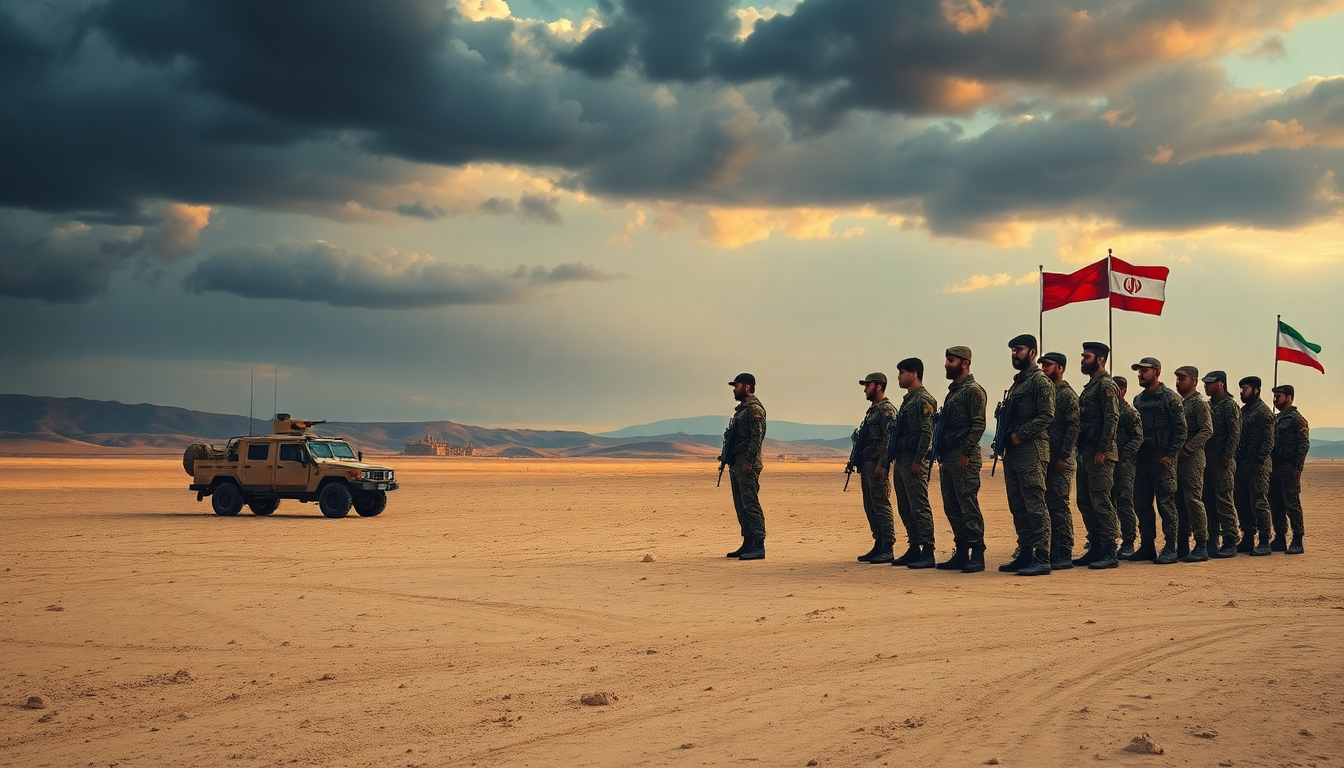Table of Contents
Imagine waking up one day to find the world spiraling into chaos, with the threat of military strikes looming overhead. The delicate balance in the Middle East teeters on the brink of disaster, and at the center of it all is the unyielding tension between Israel and Iran. President Trump recently mused about the possibility of an Israeli strike on Iranian nuclear facilities, making it clear that U.S. military support would be off the table. How’s that for a twist? The stakes are high, and the consequences could be catastrophic.
The precarious U.S.-Israel relationship
As the Trump administration navigates this minefield, officials have discreetly informed Israel that the U.S. is not prepared to provide military backing for attacks on Iran. This leaves Israel with one hell of a dilemma: strike on their own or back off. The reality is that without American support—specifically those deep-penetrating bombs that could do some serious damage—an Israeli attack might just be a flashy display of fireworks with limited impact. Sure, they might blow a few things up, but many of Iran’s critical facilities are buried deep underground. It’s like trying to hit a piñata while blindfolded; you might get lucky, but more often than not, you leave empty-handed.
Diplomatic deadlock
Tensions are rising, and Trump is caught in the middle, desperately trying to avoid a conflict that could engulf U.S. military forces stationed nearby. His remarks reflect a man grappling with the reality that the nuclear talks with Iran are dead in the water. “I would love to avoid a conflict,” he says, but the truth is, the negotiations are a mess. Iran won’t budge on its uranium enrichment, and the U.S. is adamant that it must be halted. It’s like watching a couple argue over where to eat, only the stakes involve nuclear weapons.
Iran’s threats and U.S. military posture
Meanwhile, Iran has made it abundantly clear that any Israeli strike would be met with retaliation not just against Israel but also against U.S. forces. The Pentagon, wise to the impending drama, has begun to reduce its footprint in the region, signaling that they’re preparing for the worst. Evacuations? Check. Task forces on standby? Double-check. It’s the kind of meticulous planning one might expect from a chess master, but the pieces on this board are a lot more volatile.
The ticking clock
Trump’s hopes for a diplomatic resolution hinge on a deal that would curb Iran’s nuclear ambitions in exchange for easing the crippling sanctions that have throttled its economy. But the road to such an agreement is fraught with obstacles, and every new revelation only adds to the uncertainty. Intelligence reports suggest that Israel could strike at any moment, and Trump, while hesitant to declare it imminent, acknowledges that things are heating up. Isn’t that comforting?
The internal conflict in the U.S. administration
As this high-stakes drama unfolds, there’s a palpable divide within the Trump administration itself. On one side, you have the MAGA advocates, who are wary of any military engagement that could jeopardize the fragile coalition Trump has cultivated. They remember his promises of avoiding new wars and are raising alarms about the repercussions of a strike on Iran. On the other side, military hawks, including influential figures like Rupert Murdoch, are urging Trump to take a harder stance. The clash of ideologies is almost Shakespearean in its complexity.
Netanyahu’s skepticism
Then we have Israeli Prime Minister Netanyahu, who is less than optimistic about negotiations yielding any positive results. He’s not just concerned about nuclear capabilities; he’s also eyeing Iran’s missile programs and its support for regional proxies. It’s a multi-faceted threat, and for Netanyahu, every day that passes without decisive action is a day closer to disaster. He’s been prepping for a potential strike for months, and the message is clear: if the U.S. is unwilling to pull the trigger, Israel just might.
Conclusion?
As the situation escalates, one thing is for certain: the fallout from an Israeli attack would reverberate across the Middle East, putting U.S. forces at risk. The creation of a new task force signals the administration’s expectation of a potential military crisis. It’s a sobering reminder that in this high-stakes game of chess, one misstep could lead to catastrophic consequences. But hey, who doesn’t love a little chaos? Perhaps we should sit back and watch the show unfold, popcorn in hand. After all, isn’t that what we’ve come to expect?


